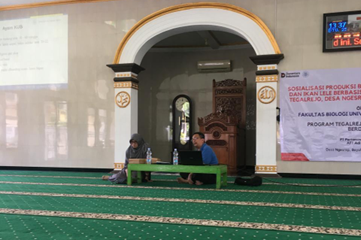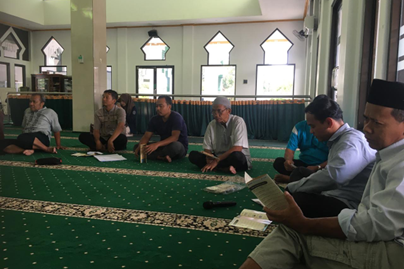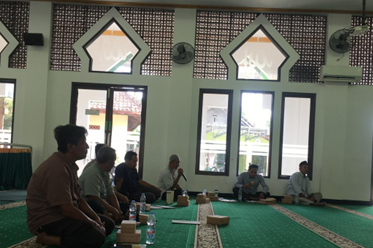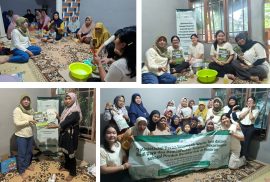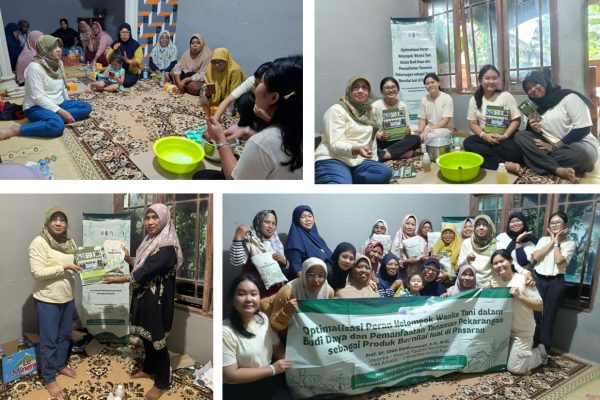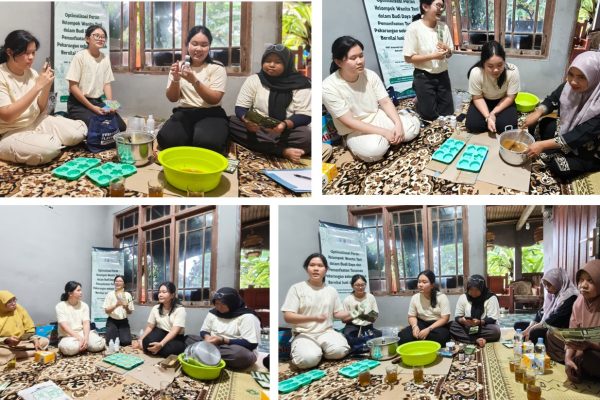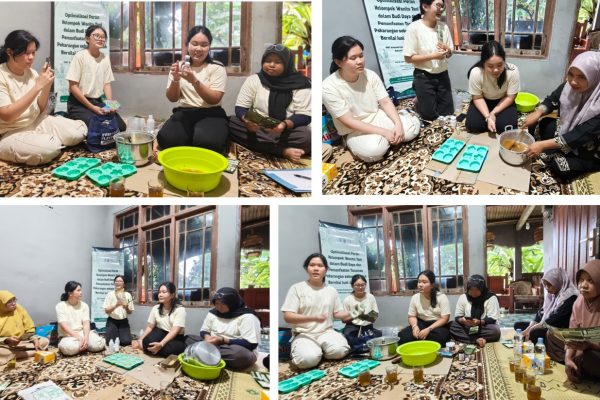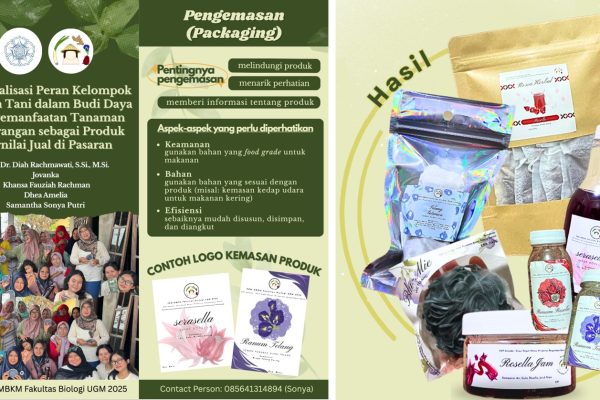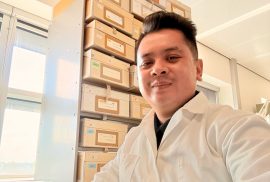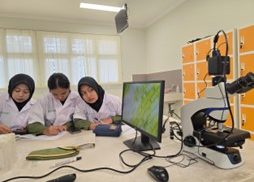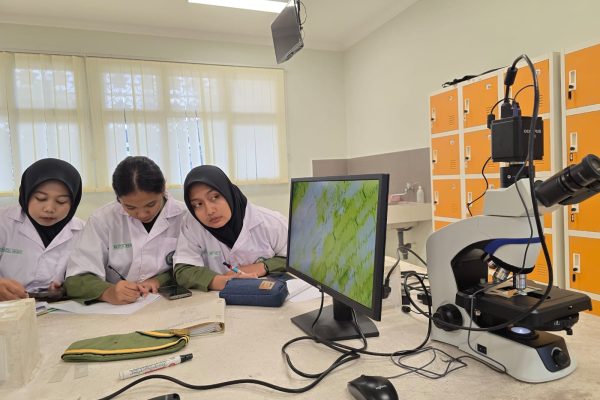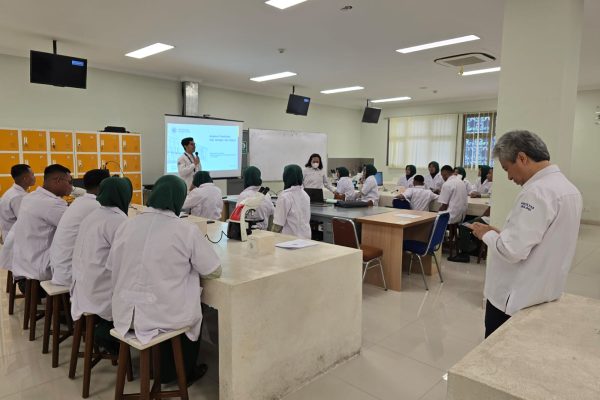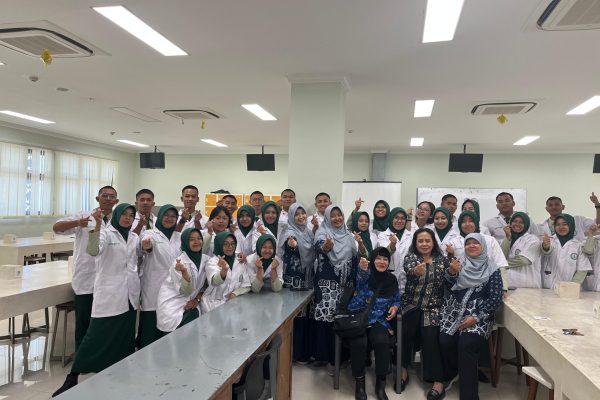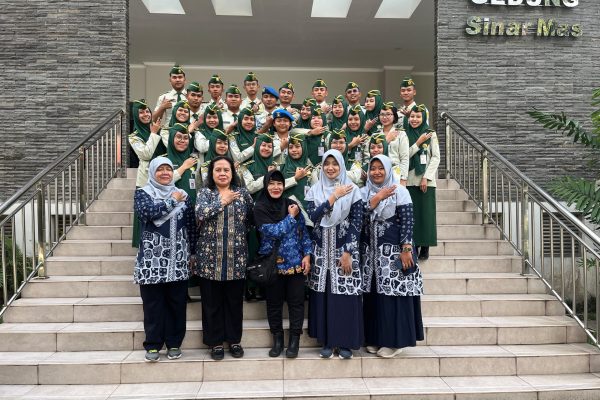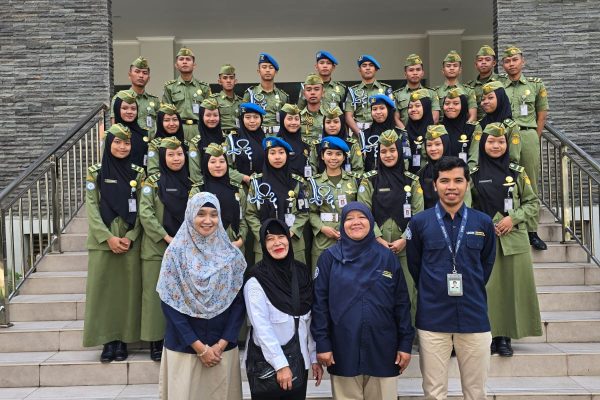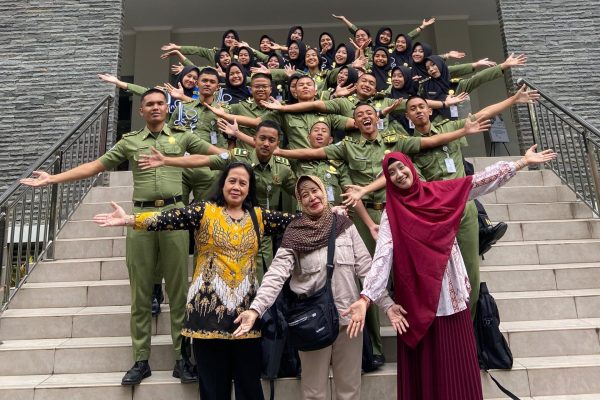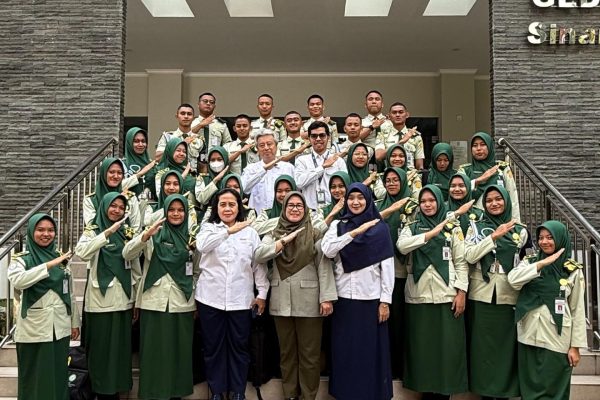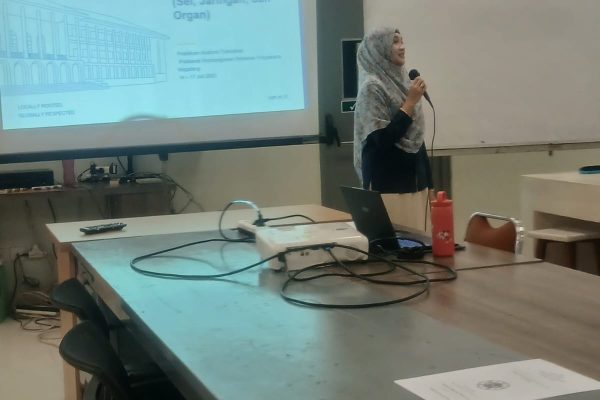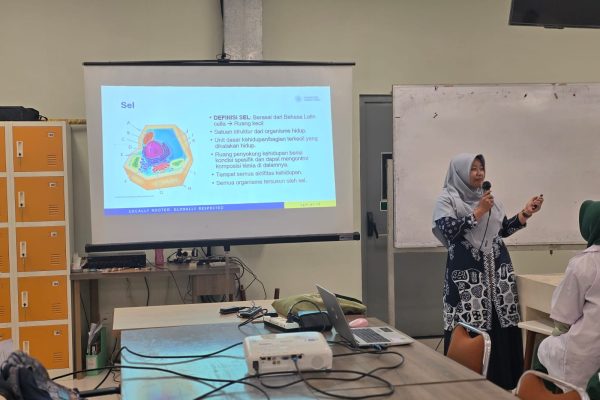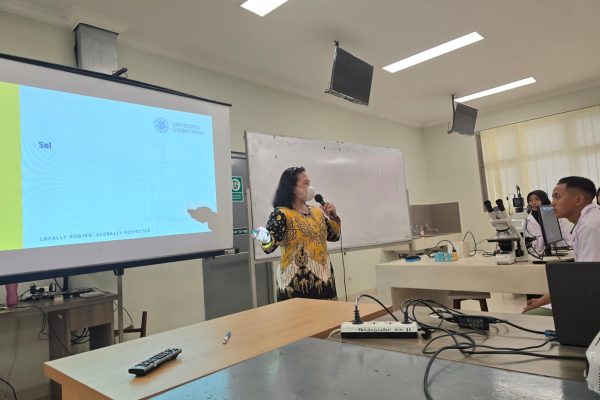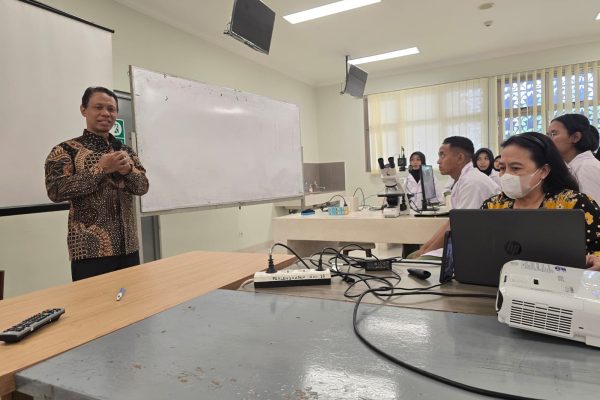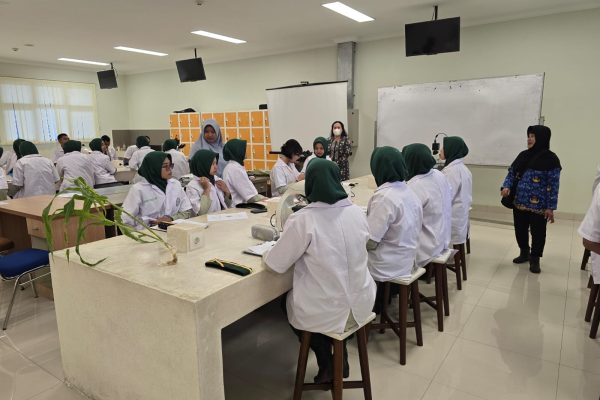The Head of the National Nutrition Agency, Dr. Ir. Dadan Hindayana, highlighted the potential of food irradiation to support national nutrition initiatives, particularly the free nutritious lunch program targeting vulnerable groups such as children from low-income families, pregnant women, and breastfeeding mothers. He emphasized the importance of high-quality food provision and sustainable organic waste processing as part of Indonesia’s upcoming national nutrition revolution and called for thorough research on the impact of food irradiation as a preservation method within this program.
The technical sessions featured distinguished speakers from both national and international institutions. Dr. Andrew Jessup, a horticultural entomologist and consultant from Australia, presented on the global market for irradiated fresh produce. He discussed how irradiation technology could be used to control fruit flies, a key challenge in horticultural exports. Since each insect species requires a specific radiation dose for sterilization, treatment protocols must be carefully tailored. He also highlighted the need to build public trust in the safety of irradiated food.
In the following session, Dra. Dwiana Andayani, Apt., from the Food and Drug Monitoring Agency (BPOM), stressed the importance of standardizing irradiation doses and complying with national and international food safety regulations. She explained that BPOM is responsible for monitoring processed irradiated food products, while the National Food Agency (BAPANAS) supervises fresh irradiated products. As of now, five processed food items have been registered as irradiated in Indonesia: cocoa powder, edible bird’s nest, frozen fish, tea, and powdered honey. All irradiated products must be labeled accordingly, following international standards.
Dr. Antarjo Dikin, a Principal Expert in Plant Quarantine at the Indonesian Quarantine Agency, provided insights into labeling procedures, the cleaning of packing facilities, and the steps involved in exporting irradiated fruits. The Nuclear Energy Regulatory Agency (BAPETEN) shared information on the licensing of irradiator facility construction and operation, radiation monitoring, and safety assurances for nuclear technology used in food applications.
From the industry perspective, Mr. Gustam, an exporter who uses food irradiation services, shared his experience in product validation, determining the effective minimum dosage, managing production costs, and fulfilling export requirements, including compliance with U.S. FDA standards for products such as tuna and salmon, which require a 3 kGy irradiation dose costing approximately IDR 800 per kilogram.
Yusra Egayanti, S.Si., Apt., M.P., Director of Food Safety and Quality Standards at BAPANAS, explained how irradiation helps extend the shelf life of fresh food by sterilizing products and eliminating pests and bacteria. Dr. Syaiful Bakri, Head of the Nuclear Energy Research Organization at BRIN, emphasized the role of research in the development of irradiation and accelerator technologies. He announced the upcoming launch of a new food irradiation facility next month, aimed at strengthening the applied research ecosystem in Indonesia. He also noted that the organization manages seven research centers focusing on both fundamental and applied research to support industrial and societal needs.
A speaker from Oneject Indonesia presented the application of electron beam technology for irradiating medical devices and food products. Su Bin, Chief Representative of China National Nuclear Corporation (CNNC) Indonesia, presented CNNC’s 70 years of nuclear experience and their strategies for integrating nuclear energy and irradiation technology into the food industry. He emphasized that different food types—such as vegetables, fruits (including mango, mangosteen, salak, and apples), bread, and ready-to-eat meals—require specific radiation doses. Proper optimization can make these foods more durable, bacteria-free, and pest-free. He also noted that irradiation is a non-invasive method that does not alter the structural or nutritional integrity of the food.
The panel discussion, moderated by Bimo Saputro, S.ST., M.Si. and Okky Agassy Firmansyah, S.T., M.Sc., was dynamic and explored diverse perspectives from technical, policy, social, and research collaboration angles. Regional government representation came from BRIDA East Kalimantan, who raised concerns about infrastructure development for irradiation facilities in their region due to limited budgets and the inefficiencies of centralized policies.
The FGD was attended by representatives from various sectors, including government institutions (BRIN, BPOM, BAPETEN, the Ministry of Agriculture, and the Ministry of Marine Affairs and Fisheries), national and multinational companies (PT Indofood, PT Unilever, PT Nestlé, PT Danone), industry associations (GAPMMI, KADIN), international organizations (IAEA, FAO, WHO, Codex Alimentarius), and leading universities such as UGM, UI, ITB, IPB, Universiras Padjajaran, Universitas Sultan Ageng Tirtayasa, Universitas Pamulang, Universitas Pertahanan, and Sekolah Tinggi Intelijen Negara (STIN). The Faculty of Biology at Universitas Gadjah Mada was represented by Novita Yustinadiar, S.Si., M.Si., a lecturer from the Laboratory of Plant Structure and Development. The involvement of academic institutions reinforced the commitment to synergize research bodies, universities, and the industrial sector to develop measurable and sustainable food irradiation technologies.
This cross-sectoral participation demonstrated strong enthusiasm for food irradiation as part of both national and global food system transformation. The event also encouraged collaborative studies by university researchers to explore irradiation impacts from various perspectives, including plant morphology, anatomy, physiology, microbiology, insect pests, biochemistry, genetic effects on food products, and implications for human health.
The discussions on food irradiation aligned with several Sustainable Development Goals (SDGs). The innovation contributes to SDG 2 (Zero Hunger) by ensuring access to safe and high-quality food, particularly in remote and disaster-affected areas. It supports SDG 3 (Good Health and Well-being) by minimizing risks from insects and pathogenic microorganisms. Through the development of irradiation infrastructure based on applied research, it advances SDG 9 (Industry, Innovation, and Infrastructure). Efficient and sustainable food processing techniques also support SDG 12 (Responsible Consumption and Production). Furthermore, the spirit of inter-agency and international collaboration embodied in the FGD reflects SDG 17 (Partnerships for the Goals), which is key to maximizing the societal benefits of nuclear technology.
Through this FGD, BRIN hopes to foster cross-sectoral consensus on the benefits of food irradiation and facilitate the development of comprehensive national standards. This initiative marks an important milestone toward establishing nuclear technology as a practical solution for enhancing Indonesian agricultural exports, reinforcing national food security, and improving public health outcomes.


